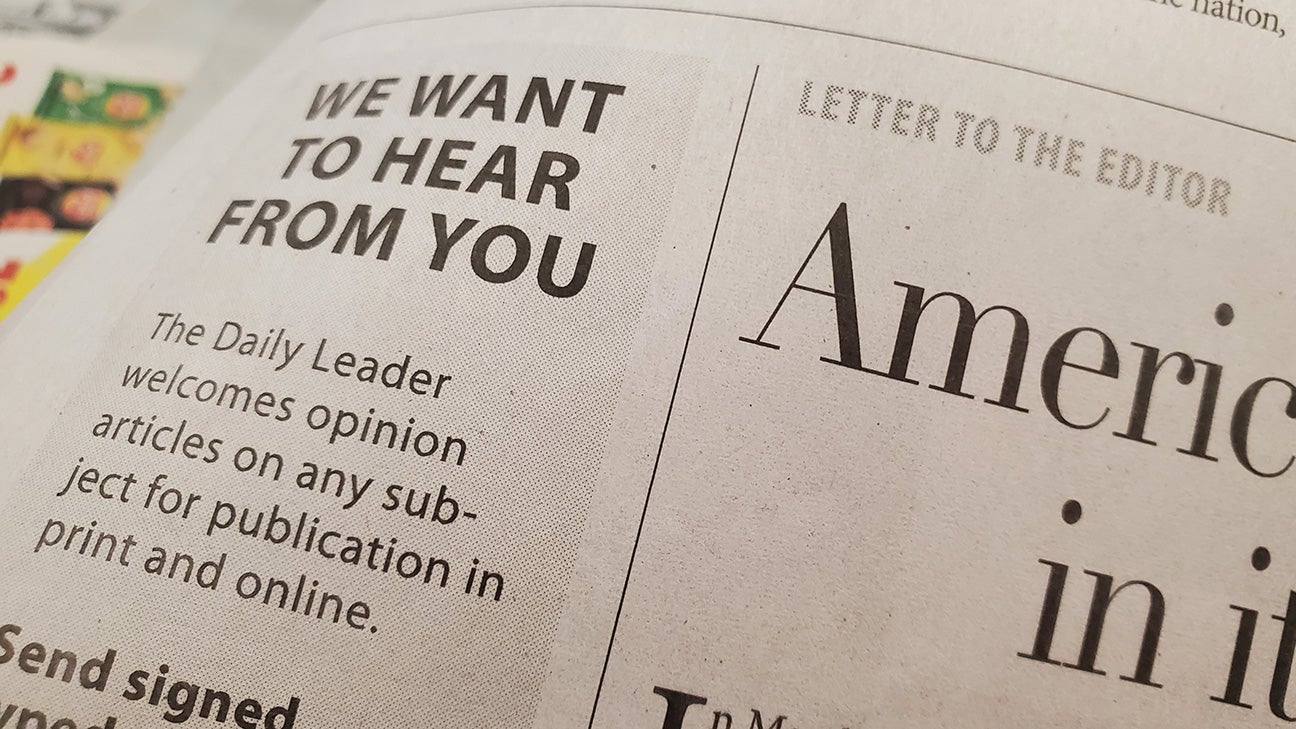Large ‘something for nothing’ crowd often overlooked
Published 9:13 pm Monday, September 17, 2018
It’s the season for storms to line up in the Atlantic and Pacific, seeming to take aim. TV weatherfolk become hyper-animated over how awful everything is going to be — which is too often true. What’s missing from the big picture is the small picture of individuals and small groups helping both in times of disaster and in everyday life.
An inherent flaw in media reporting is to write large and, in so doing, fail to document the real difference-makers.
By habit or necessity, journalists turn to government sources or the big-name humanitarian groups such as the Red Cross and Salvation Army. Nothing against them, but if you watch the excellent Mississippi Public Broadcasting documentary about Hurricane Katrina it’s evident that the first first responders were neighbors and churches and civic clubs. They raised the first flags of hope, comforted those who had lost everything by sharing whatever they had.
I’m told that groups of eight or 10 from all across America showed up, hauling trailers with grills, tanks of water and food. They set up, cooked, served and left once more reliable supply lines were created.
No one took their picture. No one knows, for sure, who they were. Mennonites? Woodmen of the World? The Peoria Kiwanis Club? Frank’s Poker Club?
In their book, “America’s Great Storm,” Haley Barbour and Jere Nash attempted to tally the value of the volunteers. Nonprofit and faith-based organizations served more than 15 million meals, sandwiches and snacks to other volunteers and displaced residents in South Mississippi. In dollars and cents, their 10 million volunteer hours calculated to a labor value of $143 million on top of the $381 million provided in cash support.
How do media organizations miss this?
Well, they don’t. Volunteers are mentioned, usually, in a sweeping way. Sometimes there are specific stories such as the Cajun Navy that boated house-to-house around Houston as water rose from Hurricane Harvey’s rainstorms.
Overall, though, the media do gloss over volunteerism in favor of official statements from the governor or the disaster chief or others serving in official capacities. It’s a natural process — not bashing my friends — but it creates a false narrative about what really happens street to street, house to house.
Because we are such a media-centered culture, this false narrative or incomplete picture of how our society really works, is too often accepted as completely accurate. It makes us appear to be a coarse, fault-finding society when the truth is very different.
We hear or see a story about dropout rates or test scores and immediately find an official to blame or ask what’s being done to fix what’s broken. It’s a safe guess though, that every public school district in Mississippi has one or more retirees who are working one-on-one to help the child of a relative or neighbor do better. They are difference-makers.
Whenever I see litter, I think about an elderly woman I’d see on my way to work. Her morning routine consisted of a neighborhood walkabout, always with a garbage bag to fill with whatever people had tossed from their car windows overnight. One time, she was asked why she thought people littered. Her answer was, “Well, I guess they think someone else will pick it up.” Then she smiled and added, “I guess that person is me.”
There are people who visit nursing homes, sometimes taking treats. They sit with and listen to stories being told by people who haven’t had anyone to talk with for weeks. There are citizens who see a section of fence at the peewee baseball field has fallen down who go out and put it back up. There are organizers of festivals and celebrations whose only desire is to build community pride. There are people who feed a lost pet and fire up Facebook to find the owner.
In good times and bad, the fabric of our society is held together by individuals, small groups, foundations and such that don’t want something for nothing and instead offer something for nothing. Not only does it need to be known, it needs to be factored into our self-assessment.
Too often the very real temptation is to believe Mississippi is in big trouble and no one is doing anything about it. The very different reality is that just as after Katrina, just as after the floods and tornadoes of this decade, people are helping each other in whatever way they are able and with no expectation of thanks or reward. It’s a crucial part of who we are.
Charlie Mitchell is a Mississippi journalist. Write to him at cmitchell43@yahoo.com.





